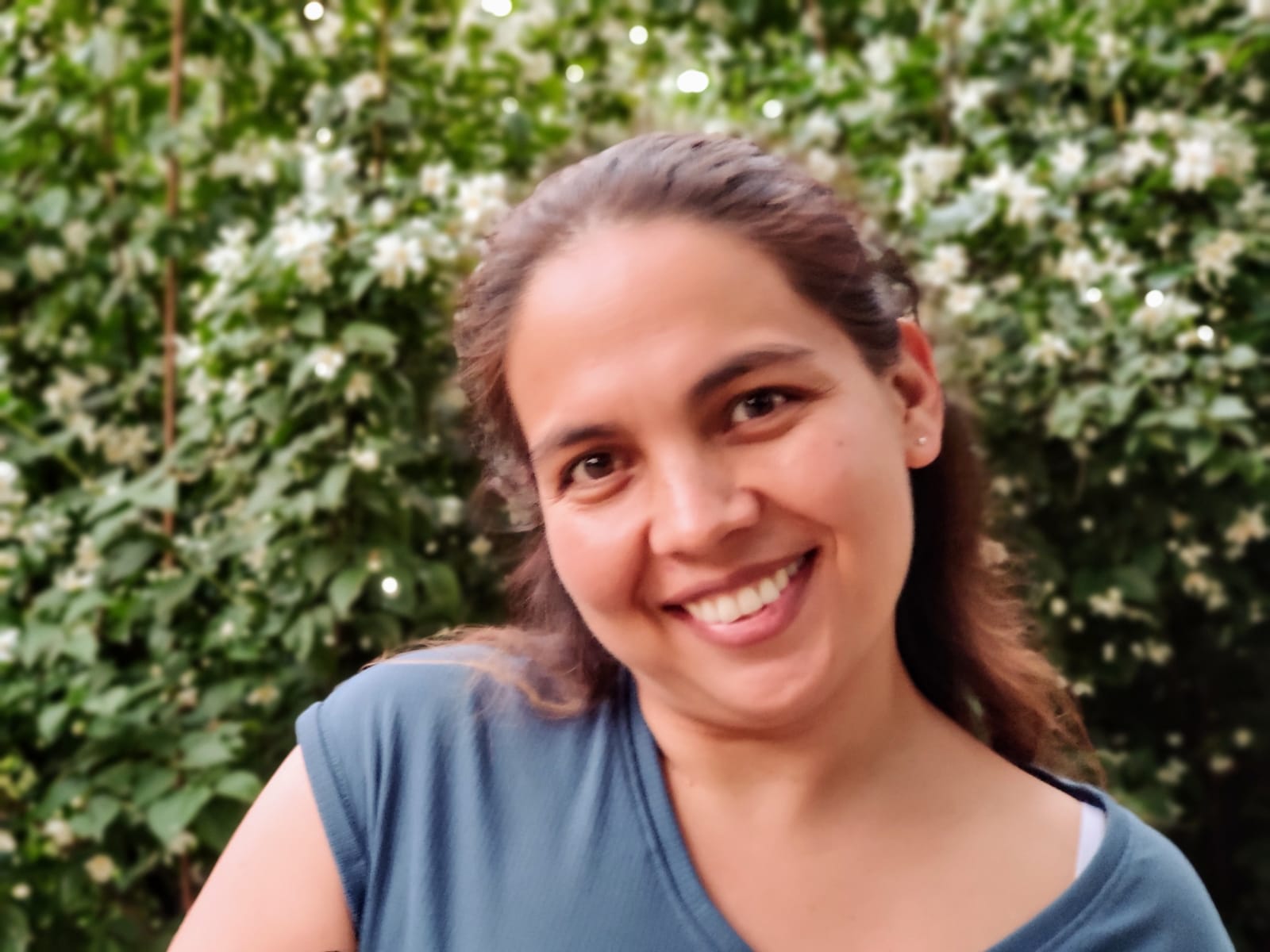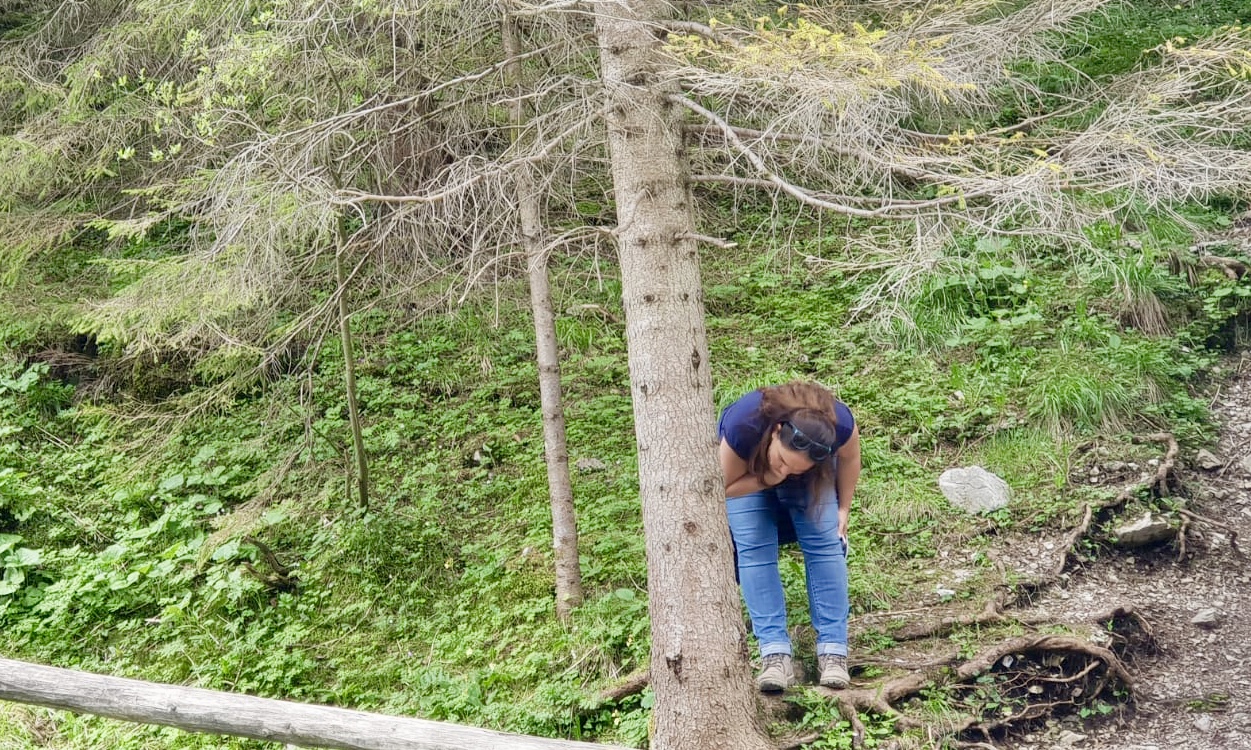 Dr Vasthi Alonso works at Rothamsted Research as a post-doctoral research scientist. Her main interests focus on the development of mathematical and epidemiological models for the monitoring, detection and control of diseases in plants, crops and trees. She has a BSc and MSc in physics and a PhD in applied mathematics. Her latest research focuses on developing strategies to optimise the deployment of often limited controls in the presence of a pest or disease. Follow Vasthi on Twitter @VasthiAlonso
Dr Vasthi Alonso works at Rothamsted Research as a post-doctoral research scientist. Her main interests focus on the development of mathematical and epidemiological models for the monitoring, detection and control of diseases in plants, crops and trees. She has a BSc and MSc in physics and a PhD in applied mathematics. Her latest research focuses on developing strategies to optimise the deployment of often limited controls in the presence of a pest or disease. Follow Vasthi on Twitter @VasthiAlonso
You can catch Vashti on her soapbox as part of Soapbox Science Milton Keynes on 29th June, where she will be talking about “When maths and plants come together to fight diseases”.
by Vasthi Alonso
Four year old me to my brother: “You are a papio hamadryas!”
My six year old brother replies: “….and you are an ateles geoffroyi!”
Some of my earliest memories are when my brother and I called each other the scientific names of animals.
You see? My dad is a vet, and he and my mum used to take us to the zoo almost every other week, and buy us books about animals. I used to spend hours turning the pages, looking at them, and trying to learn the names of the weirdest ones. My favourite was the echidna.
During my second year at high-school I chose to do physics for my undergraduate degree, as I had decided I wanted to be an astronomer. I wanted to see the stars, recognise the constellations….all that romantic stuff. The first year of uni was incredibly tough for me. I was used to getting full marks all the time, but that didn’t happen. However, I persevered and started enjoying my career choice more and more.
I took some astronomy courses. Some of the most beautiful places on earth I’ve ever seen are next to observatories, where nature abounds and the skies are clearer and cleaner than most places on Earth, where you can see the Milky Way with the naked eye and everything is calm and quiet. However, becoming an observational astronomer means not sleeping at night during observational periods and I realised I would struggle with that. On the other hand, theoretical astronomy did not attract me. It’s interesting but often very abstract, and I like to see how science applies to real life. This little detour into astronomy wasn’t wasted, as it was an amazing experience and helped me to become the scientist I am now.
That’s when my love for biology came back in to my life. I enrolled on an animal biology course and I simply I loved it. Some animals are so simple and yet so complex, beautiful and weird that I was constantly mesmerised. I had the chance to hold an octopus and tenderly deposit a sea cucumber on the sea floor, count sea urchins and well as fish parasites, and look at old nautilus shells. I knew then that I wanted to do something closely linked to biology, and so my journey as a mathematical modeller began. Both my MSc dissertation and my PhD were focused on ecological modelling. I enjoyed my studies, but it wasn’t easy.
After my PhD I joined Rothamsted Research, which is the oldest agricultural research centre in the world. I’ve been working there for about six years solving equations that shed some light on how complex biological systems work. Sometimes things flow very smoothly. Sometimes it feels like nothing will ever work out. You get stuck and it’s incredibly frustrating.
Being a scientist is really hard work, it doesn’t pay much, and needs a lot of perseverance, but it can be incredibly rewarding. When you see that your research can help solve current world challenges for real people that will make this Earth a better place for everyone to live in, that’s when science gives you back a little bit of what you put in.

Observing the Spruce bark beetle, a devastating pest in Eastern Europe
